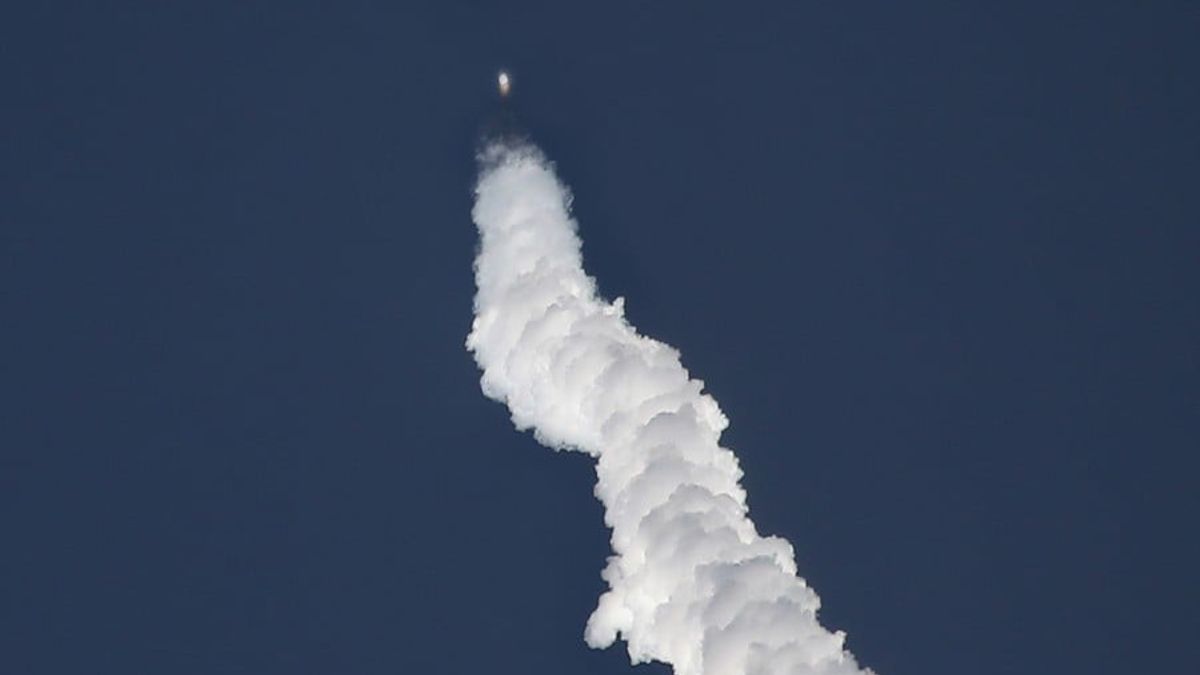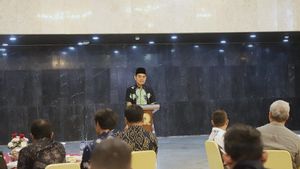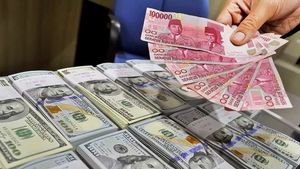JAKARTA - North Korea is believed to have fired a new type of ballistic missile on Thursday, before landing between the Korean Peninsula and Japan, raising concerns about possible technical progress in its weapons program.
Speaking to reporters, an official of the Joint Chiefs of Staff (JCS) said the new type of missile in question was believed to be using solid fuel.
Solid fuel offers greater mobility for missiles and reduces pre-launch preparation times, compared to liquid fuels that require more preparation time that require detectable activity, therefore, providing time for South Korea and the United States to prepare before launch.
"Given the importance of North Korean founder Kim Il-sung's birthday on April 15, North Korea is very likely to test a solid-fueled ballistic missile," Cheong Seong-chang, senior analyst at the Sejong Institute think tank, told The Korea Times, as reported April 13.
"This trial will provide the regime with the opportunity to send a challenging message to Seoul and its allies, as well as to promote it as an achievement ahead of an important political warning."
The solid-propelled intercontinental ballistic missile (ICBM) is one of the main weapons on North Korean leader Kim Jong-un's wish list, which has expanded and expressed his nuclear ambitions after a resultless summit with US President Donald Trump in 2019.
JCS said the missile was fired at a high angle from the Pyongyang capital area and crashed into the East Sea after traveling 1,000 kilometers.
The latest launch had prompted the Japanese government to issue an evacuation order in Hokkaido. Later, the order was lifted, after it was confirmed the missile would not fall near the island in northeastern Japan.
Meanwhile, South Korea's National Security Council (NSC) "firmly" condemned the trial, which it called a "heavy violation" of UN Security Council resolutions.
"NSC members emphasize that North Korea's repeated provocation and threat statements demonstrate the importance of the alliance and strong trust between South Korea and the US. We will continue to conduct joint military exercises to maintain readiness," NSC said in a statement.
"We will also strengthen security cooperation with the United States and Japan in the field of information sharing, after normalizing the General Security Treaty on Military Information," the statement continued.
Separately, analysts fear there will be no such a change in attitude is unrealistic, given the "profitable" geopolitical situation for North Korea's arms development.
"North Korea will continue to strive to improve its weapons capabilities as long as possible. The war in Ukraine and the new cold war climate have created an ideal environment for North Korea to develop its weapons program," Cheong said.
"Once the US and Russia begin to improve relations after the war, favorable situations for North Korea can change. Meanwhile, North Korea will continue to use it," he said.
As for Jeong Han-beom, a professor of international relations at Korea's National Defense University believes there is almost no choice available for South Korea or the US to take action to tame North Korea's aggression, which describes the grim prospects for Seoul's diplomatic efforts for the summit with Washington on April 26 and the G7 summit next month.
"With North Korea already below almost all available sanctions, there are only a few meaningful additional steps that South Korea or the US can take," said Jeong.
"There will be some joint announcements, but I think it will be more symbolic and have no practical effect," he concluded.
The English, Chinese, Japanese, Arabic, and French versions are automatically generated by the AI. So there may still be inaccuracies in translating, please always see Indonesian as our main language. (system supported by DigitalSiber.id)













